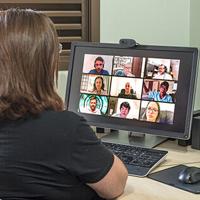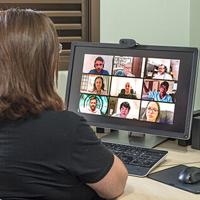
When “something’s wrong” with a loved one, family members want to know how to help
The new online Avera Behavioral Health Family Education Group is ready for any adult with a loved one who has experienced worrisome signs of mental health conditions such as anxiety and depression.
From the privacy of your home or office, you can learn more and most importantly, ask questions.
“We can help people recognize warning signs,” Kalen Speake, Avera Behavioral Health Navigator, said. “In addition, we can equip you with crisis-response tools.”
The half-hour sessions are held twice each week, augmenting services offered at Avera Behavioral Health Center.
Learning support
While there are many resources to help families and individuals facing mental health challenges, this online group aims to offer knowledge in a more easy-to-access way. The program covers a number of topics, including:
- Signs of depression
- How anxiety affects a loved one
- Statistics on mental health
- Specific ways you can help
“Anyone who could use more knowledge on these topics is welcome,” Speake said.
The online sessions are supportive and interactive. Some people can fear the stigma that might go with an in-person support group, Speake said. Others might want to learn more before they schedule an appointment.
“It’s an online chat, but everyone is muted, so you can listen to the presentation,” she said. “We use time at the end to answer questions and it’s then we can pinpoint instructions or address unique concerns.”
Preventing suicide
An anonymous donor funded the new program, in part to equip families with information that can help reduce self-harm and self-destructive actions. More than 47,000 Americans died by suicide in 2019. It remains the 10th leading cause of death in the nation for adults.
Unfortunately, it is still the second leading cause of death among adolescents.
When family members know warning signs, they can act. When you take part in the online family group, you receive private information that can help you and your family member. “Getting professional insight into things you might worry about is one good way to try to help,” she said. “We want to help anyone who needs it.”

